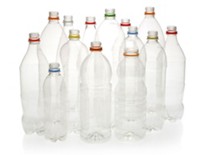Advertisement
Grab your lab coat. Let's get started
Welcome!
Welcome!
Create an account below to get 6 C&EN articles per month, receive newsletters and more - all free.
It seems this is your first time logging in online. Please enter the following information to continue.
As an ACS member you automatically get access to this site. All we need is few more details to create your reading experience.
Not you? Sign in with a different account.
Not you? Sign in with a different account.
ERROR 1
ERROR 1
ERROR 2
ERROR 2
ERROR 2
ERROR 2
ERROR 2
Password and Confirm password must match.
If you have an ACS member number, please enter it here so we can link this account to your membership. (optional)
ERROR 2
ACS values your privacy. By submitting your information, you are gaining access to C&EN and subscribing to our weekly newsletter. We use the information you provide to make your reading experience better, and we will never sell your data to third party members.
Policy
Chemical makers step up dumping claims
Congress, Trump Administration have signaled willingness to investigate low-priced imports
by Melody M. Bomgardner
October 9, 2017
| A version of this story appeared in
Volume 95, Issue 40

U.S.-based chemical makers are pressing claims that overseas competitors are underpricing exports in an effort to steal market share, a practice known as dumping. The trade complaints come as Congress and the Trump Administration say they will take aggressive action to protect domestic manufacturers from unfair trade practices.
Four major polymer companies with operations in the U.S.—DAK Americas, Indorama Ventures USA, M&G Polymers USA, and Nan Ya Plastics —have filed petitions alleging that polyethylene terephthalate (PET) resin makers in Brazil, Indonesia, Pakistan, South Korea, and Taiwan are pricing exports to the U.S. at less than fair value.
PET is used to make basic goods including soda bottles and polyester fibers. The U.S. producers claim that dumping is causing them financial injury and are asking the U.S. government to impose antidumping duties on the imports. They point out that U.S. imports of PET from the countries rose by 305% to over 270 million kg from 2014 to 2016.
Separately, the U.S.-based chemical company Chemours claims that Chinese and Indian producers of polytetrafluoroethylene, a resin that Chemours sells under the trade name Teflon, are dumping products in the U.S. Chemours says the Indian companies unfairly benefit from export subsidies awarded by the government of India.
The petitions will kick off investigations by the U.S. Commerce Department to determine if imported products are unfairly priced and by how much. If dumping allegations hold up, the U.S. International Trade Commission then determines if domestic producers are truly harmed by the practice. The government can impose antidumping duties to level the playing field.
Domestic manufacturers are likely emboldened by the Trump Administration’s tough talk on enforcing trade rules, according to trade attorneys contacted by C&EN. In addition, Congress has also tightened trade provisions to make it harder to evade antidumping duties.
“I think there is definitely a trend in more filings,” says George Tuttle III, a San Francisco-based trade attorney. “We really see a tightening down, with the U.S. government trying to quell all of this industry complaint and a congressional fervor for action to protect domestic industry.”




Join the conversation
Contact the reporter
Submit a Letter to the Editor for publication
Engage with us on Twitter